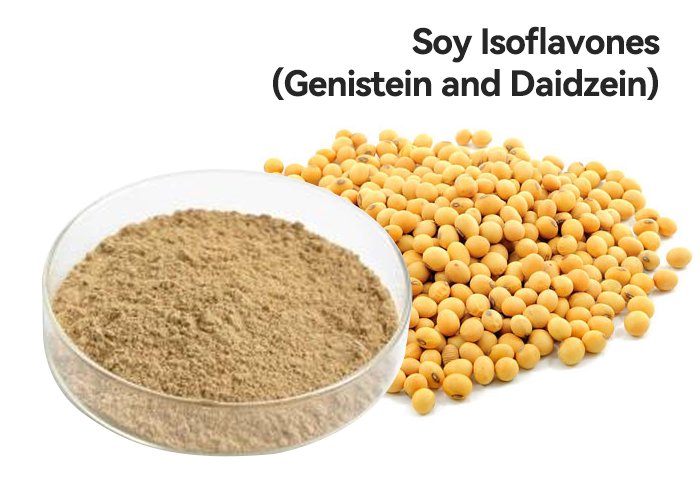Soy Isoflavones (Genistein And Daidzein) Extract
Soy isoflavones (Genistein and Daidzein) are compounds found in a wide variety of foods, but mostly soy, that affect a wide-variety of body systems. They seem to mimic the female hormone estrogen to a degree (although slightly different).
They have been implicated in both reductions and increases of breast cancer risk, and generally are good at cardioprotection from reducing lipoprotein levels and are seen as good for bone health in the aging as well.
Soy protein is a protein that is isolated from soybean. It is made from soybean meal that has been dehulled and defatted. Dehulled and defatted soybeans are processed into three kinds of high protein commercial products: soy flour, concentrates, and isolates. Soy protein isolate has been used since 1959 in foods for its functional properties.
Lecithin is a food additive that comes from several sources — one of them being soy. It’s generally used as an emulsifier, or lubricant, when added to food, but also has uses as an antioxidant and flavor protector.
Product Name | Latin Name | Specification |
Soy Isoflavones | Glycine max
| Isoflavones 5%-90% (Daidzin+Glycitin+Genistin+Daidzein+Daidzein+Genistein) |
Isolated Soy Protein | Protein ≥90% GB/T5009.5 | |
Soy Lecithin | Soy Lecithin Powder Phosphatidylcholine(PC) 10%-90% HPLC HSPC(Hydrogenated Phosphatidylcholine) 10%-90% HPLC |










